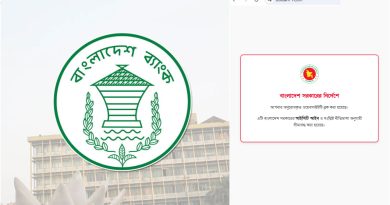Leaders of Bangladesh’s top ready-made garment and textile associations have urged the government to streamline gas‐connection rules, arguing that procedural hurdles are capping output by up to 40 percent and eroding export earnings.
In a joint letter to Muhammad Fouzul Kabir Khan, Adviser to the Ministry of Power, Energy and Mineral Resources, the industry heads asked that existing industrial and captive gas users be exempted from seeking re-approval from Titas Gas when they reorganize equipment—so long as their hourly load, monthly load and outlet pressure remain unchanged.
“We believe removing the requirement for prior approvals will enable factories to adopt more energy‐efficient, high-performance machinery without delay,” the letter states. “This will significantly boost energy efficiency, ramp up production and help earn valuable foreign exchange.”
Signatories include:
- Hossain Mehmood, President, Bangladesh Terry Towel & Linen Manufacturers & Exporters Association (BTTLMEA)
- Fazlee Shamim Ehsan, Executive President, Bangladesh Knitwear Manufacturers & Exporters Association (BKMEA)
- Anwar-ul-Alam Chowdhury, President, Bangladesh Chamber of Industries (BCI)
- Taskeen Ahmed, President, Dhaka Chamber of Commerce & Industry (DCCI)
- Mahmud Hasan Khan, President, Bangladesh Garments Manufacturers & Exporters Association (BGMEA)
- Showkat Aziz Russell, President, Bangladesh Textile Mills Association (BTMA)
Current regulations force mills—even those approved by BIDA and financed by banks—to secure fresh clearances from gas and electricity distributors for internal machinery shifts or capacity tweaks. According to the associations, this red tape has led to chronic under-utilization of installed capacity and mounting production backlogs.
Key reform proposals include:
- Limiting gas‐distributor oversight to the RMS (Regulating and Metering Station) room if approved load and pressure stay the same
- Rescinding the directive that captive power plants above 10 MW obtain electricity-distribution clearance
- Allowing unused gas load to move between units or premises under the same ownership without a new connection fee
- Introducing a fully digital application process for gas connections and meter installations, with a 3–5 working‐day turnaround
- Empowering regional gas offices to approve minor load rearrangements
- Establishing an approved list of gas-meter brands and models to speed procurement and installation
- Automatically approving low-pressure regulators in pressure‐short areas
The letter, also copied to the Commerce Adviser, warns that without these reforms, the RMG and textile sectors will struggle to meet global buyer demands and expand export market share. Continuous gas shortages, they say, will hold back industry-wide productivity gains and foreign-exchange inflows.






